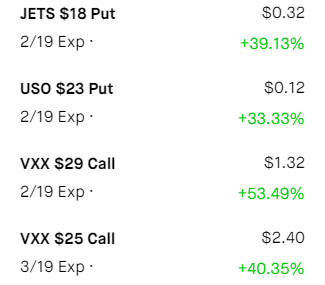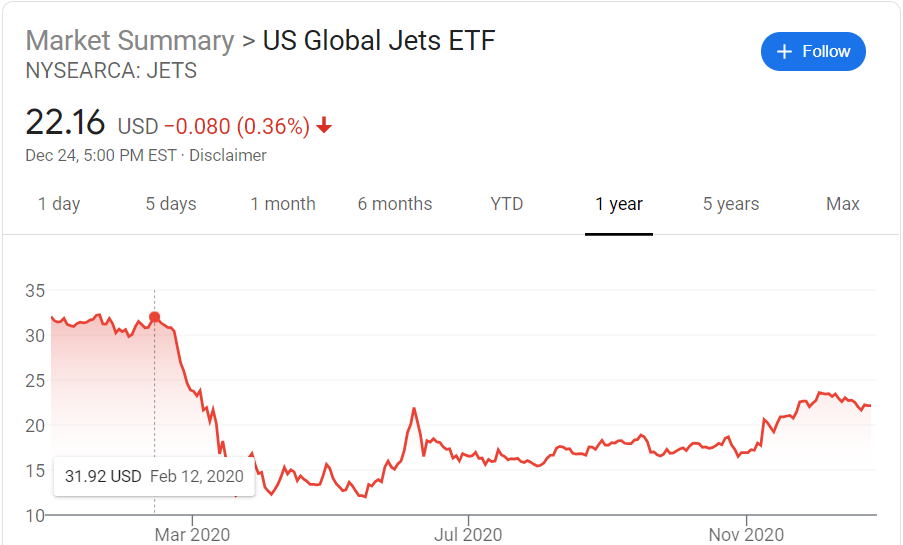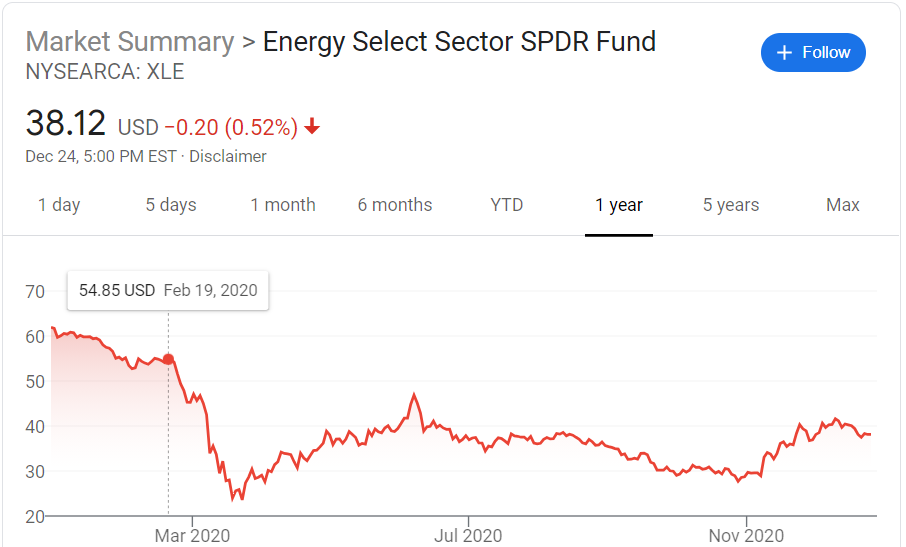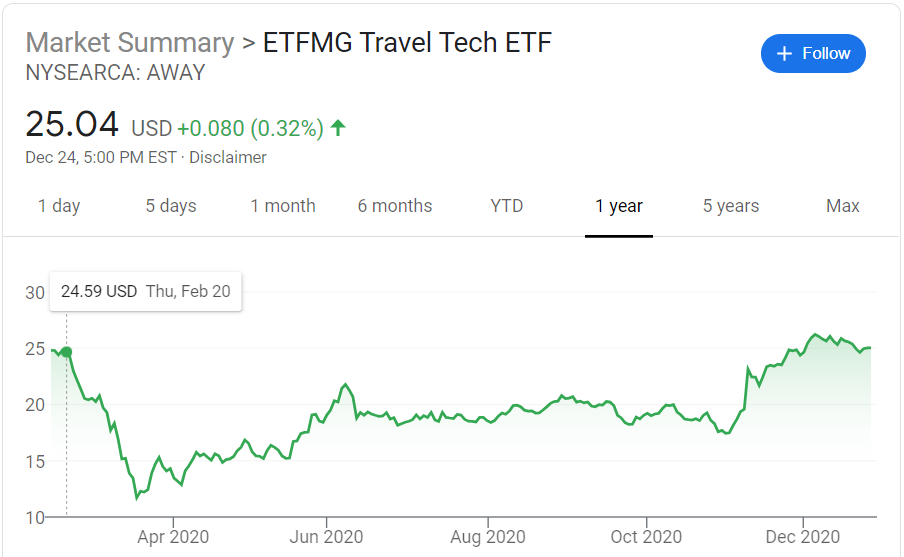All of Jacob Falkovich's Comments + Replies
Kudos for getting this interview and posting it! Extremely based.
As for Metz himself, nothing here changed my mind from what I wrote about him three years ago:
But the skill of reporting by itself is utterly insufficient for writing about ideas, to the point where a journalist can forget that ideas are a thing worth writing about. And so Metz stumbled on one of the most prolific generators of ideas on the internet and produced 3,000 words of bland gossip. It’s lame, but it’s not evil.
He just seems not bright or open minded enough to understand different nor...
I think you're ascribing to stupidity what can be attributed to malice on a plain reading of his words.
I feared other women not being into me was a sign she should focus on mating with other guys
When my wife and I just opened up, I did feel jealous quite regularly and eventually realized that the specific thing I was feeling was basically this. It felt like an ego/competitive/status loss thing as opposed to an actual fear of her infidelity or intent to leave me. And then after four years together it went away and never came back.
Now I actually find it kinda fun to not explicitly address "might we fuck?" with some friends, just leave it at the edge of things...
This article made me realize a truth that should've been obvious to me a long time ago: the main benefit I get from polyamory is close female friends (where I don't have to worry about attraction ruining the friendship), sex and romance are secondary.
FWIW, my experience on this was… mixed.
My easiest time having female friends was in an implicitly monogamous context, when I was married, and my wife and I were exclusive. It was super easy. Like a switch in my brain could just filter out the attraction question. It's like it was as addressed for all women the way it's always addressed for all men.
It became way messier when she & I opened up our marriage. Then the sexual dynamic between me and her felt to me like it depended on whether I could find other female partners. I don't know if she really felt...
I spent a long time figuring out the same thing about women's beauty, and came to roughly similar conclusions: https://putanumonit.com/2022/12/13/why-are-women-hot/
...We already established that men will happily have sex with women who aren’t optimizing for sexiness, and date women who aren’t the most sexually desirable, and persist in long-term relationships independent of the woman’s looks, and will care about their woman’s beauty in large part to the extent that they care about its effects their status in the hierarchy of men. And so my answer to the origi
Hmm, while it's true that many women can still attract a mate/have plenty of sex if they don't put effort into their looks, it definitely seems to me (anecdotally, through both my own lived experience and what others talk about) that women get more male attention when they do put in effort
The honor system sucks ass. Men want to fight for fun or to defend their tribe (I did both!) but not to be compelled into a fight by any random moron insulting them or they'll face social repercussions from within their own people.
Countercounterpoint: I just wanted to fight in rationalist fight club and it was great fun, I don't really care about winning (and not much about training).
By "everything is just experiences" I mean that all I have of the rock are experiences: its color, its apparent physical realness, etc. As for the rock itself, I highly doubt that it experiences anything.
As for your red being my red, we can compare the real phenomenology of it: does your red feel closer to purple or orange? Does it make you hungry or horny? But there's no intersubjective realm in which the qualia themselves of my red and your red can be compared, and no causal effect of the qualia themselves that can be measured or even discussed.
I feel th...
I tried to communicate a psychological process that occurred for me: I used to feel that there's something to the Hard Problem of Consciousness, then I read this book explaining the qualities of our phenomenology, now I don't think there's anything to HPoC. This isn't really ignoring HPoC, it's offering a way out that seems more productive than addressing it directly. This is in part because terms HPoC insists on for addressing it are themselves confused and ambiguous.
With that said, let me try to actually address HPoC directly although I suspect that this...
I understand where you're coming from, but I think that norms about e.g. warning people about writing from an objectionable frame only makes sense for personal blogs and it's not a very reasonable expectation for a forum like LessWrong. These things are always very subjective (the three women I sent this post to for review certainly didn't feel that it assumed a male audience!). While a single author can create a shared expectation of what they mean by e.g. "warning: sexualizing" with their readers I don't think a whole community can or should try to forma...
This was a very interesting read. Aside from just illuminating history and how people used to think differently, I think this story has a lot of implications for policy questions today.
The go-to suggestions for pretty much any structural ill in the world today is to "raise awareness" and "appoint someone". These two things often make the problem worse. "Raising awareness" mostly acts to give activists moral license to do nothing practical about the problem, and can even backfire by making the problem a political issue. For example, a campaign to raise awar...
The best compliment I can give this post is that the core idea seems so obviously true that it seems impossible that I haven't thought of or read it before. And yet, I don't think I have.
Aside from the core idea that it's scientifically useful to determine the short list of variables that fully determine or mediate an effect, the secondary claim is that this is the main type of science that is useful and the "hypothesis rejection" paradigm is a distraction. This is repeated a few times but not really proven, and it's not hard to think of counterexamples: m...
This seems very obviously incorrect. Googling "how to make boyfriend happy" brings up a lot of articles about showing trust, making romantic gestures, giving compliments, doing extra chores, etc.
That's true, but I think this sort of thing isn't usually given as "dating advice" for women and many would bristle at the suggestion that the girl has to do and practice all those things to find a happy relationship. A girl who's googling "how to make boyfriend happy" instead of "how to get boyfriend" is already on the right track.
And again, I'm not saying that wo...
Jack Sparrow is clearly recognized as a man by me, you, and everyone we know. Maybe where you grew up all men were limited in their gender expression to be somewhere between Jack Sparrow and John Rambo, in which case you really wouldn't need more than two genders. But that doesn't begin to cover the range of gender expression we see, not in some abstract thought experiment or rare medical edge case but in our very own community.
I bought a new house last year, and it has an old empty workshop attached. I'd like to 'revive' it, but I've got little "workshop-experience".
In preparation, I bought some books on woodworking and pottery. The woodworking books are very traditionally masculine. Men! Chest hair! Beer! BBQ!
But the book on pottery is quite feminine. Bright photos, soft colors, everything is demonstrated by a female Instagram influencer.
That doesn't matter in the slightest to me. I don't think my interest in pottery has any relationship to my gender. I don't ...
Just as a data point for you: I made the conscious decision to spend 100 hours on Elden Ring the day I bought it, and have spent almost none of these 100 hours feeling conflicted or shamed. Writing this post was also fun — was writing the comment fun for you?
I don't want to go into a discussion of all the topics this touches on from self-coercion to time management to AI timelines to fun, just a reminder to be careful about typical minding.
>if you hung out talking to people at a random bar, or on a random Discord server, or at work
The difference is that the Twitter ingroup has much more variety and quality (as evidenced by the big LW contingent) than your local bar, since it selects from a huge pool of people in large part for the ability to come up with cool ideas and takes. It's also much more conducive to open conversation on any and every topic whatsoever in a way that your workplace clearly isn't (nor should be, you have work to do!)
Of course, your local bar or server or workpl...
>Who do I follow, what buttons do I click...
Twitter shows you not only what someone posted, but also who they follow and a list of the tweets they liked. You can start from there for me or the people I linked to, find enough follows to at least entertain you while you learn the norms and see if you like the vibe enough to stay long-term. You won't find a clearer set of instructions for joining something as nebulous as the Twitter ingroup than what I wrote up here.
Yes. I think it ultimately wasn't a momentous historical event, especially in the short-term, but it was hard to know at the time and that's good practice for staying rational as history is happening (or not) as well.
Kind of a dark thought, but: there's always a baby boom after a war, fertility shoots way up. Putin has tried to prop up the Russian birth rate for many years to no avail...
I think it's extremely useful practice to follow momentous live events, try to figure out what's happening, and make live bets (which you can do for example by trading Russian/European stock indices and commodities). When the event of historic importance happens at your doorstep there will be even more FUD to deal with as you're looking for critical information to make decisions, and even more emotions to control.
I know this sounds kinda morbid, but I often ask myself the following question: what would I have done if I was a rich Jew in Vienna in 1936? Thi...
This is a useful clarification. I use "edge" normally to include both the difference in probability of winning and losing and the different payout ratios. I think this usage is intuitive: if you're betting 5:1 on rolls of a six-sided die, no one would say they have a 66.7% "edge" in guessing that a particular number will NOT come up 5/6 of the time — it's clear that the payout ratio offsets the probability ratio.
Anyway, I don't want to clunk up the explanation so I just added a link to the precise formula on Wikipedia. If this essay gets selected on condition that I clarify the math, I'll make whatever edits are needed.
I feel like I don't have a good sense of what China is trying to do by locking down millions of people for weeks at a time and how they're modeling this. Some possibilities:
- They're just looking to keep a lid on things until the Chinese New Year (2/1) and the Olympics (2/4 - 2/20) at which point they'll relax restrictions and just try to flatten the top in each city.
- They legit think they're going to keep omicron contained forever (or until omicron-targeting vaccines?) and will lock down hard wherever it pops out.
- No one thinks they're not merely delaying the
I was in a few long-term relationship in my early twenties when I myself wasn't mature/aware enough for selfless dating. Then, after a 4-year relationship that was very explicit-rules based had ended, I went on about 25 first dates in the space of about 1 year before meeting my wife. Basically all of those 25 didn't work because of a lack of mutual interest, not because we both tried to make it a long-term thing but failed to hunt stag.
If I was single today, I would date not through OkCupid as I did back in 2014 but through the intellectual communities I'm...
As a note, I've spoken many times about the importance of having empathy for romanceless men because they're a common punching bag and have written about incel culture specifically. The fact that the absolute worst and most aggravating commenters on my blog identify as incels doesn't make me anti-incel, it just makes me anti those commenters.
I should've written "capitulated to consumerism" but "capitulate to capital" just sounds really cool if you say it out loud.
"Bitcoin" comes from the old Hebrew "Beit Cohen", meaning "house of the priest" or "temple". Jesus cleansed the temple in Jerusalem by driving out the money lenders. The implications of this on Bitcoin vis a vis interchangeable fiat currencies are obvious and need no elaboration.
The full text of John 2 proves this connection beyond any doubt. "𝘏𝘦 𝘴𝘤𝘢𝘵𝘵𝘦𝘳𝘦𝘥 𝘵𝘩𝘦 𝘤𝘩𝘢𝘯𝘨𝘦𝘳'𝘴 𝘤𝘰𝘪𝘯𝘴 𝘢𝘯𝘥 𝘰𝘷𝘦𝘳𝘵𝘩𝘳𝘦𝘸 𝘵𝘩𝘦𝘪𝘳 𝘵𝘢𝘣𝘭𝘦𝘴" (John 2:15) refers to overthrowing the database tables of the centralized ledger and "scattering" the rec...
The ordering is based on measures of neuro-correlates of the level of consciousness like neural entropy or perturbational complexity, not on how groovy it subjectively feels.
Copying from my Twitter response to Eliezer:
Anil Seth usefully breaks down consciousness into 3 main components:
1. level of consciousness (anesthesia < deep sleep < awake < psychedelic)
2. contents of consciousness (qualia — external, interoceptive, and mental)
3. consciousness of the self, which can further be broken down into components like feeling ownership of a body, narrative self, and a 1st person perspective.
He shows how each of these can be quite independent. For example, the selfhood of body-ownership can be fucked with u...
I agree with pretty much all of that but remark that "deep sleep < awake < psychedelic" is not at all clearly more correct than "deep sleep < psychedelic < awake". You may feel more aware/conscious/awake/whatever when under the effects of psychedelic drugs, but feeling something doesn't necessarily make it so.
The "generalist" description is basically my dream job right until
>The team is in Berkeley, California, and team members must be here full-time.
Just yesterday I was talking to a friend who wants to leave his finance job to work on AI safety and one of his main hesitations is that whichever organization he joins will require him to move to the Bay. It's one thing to leave a job, it's another to leave a city and a community (and a working partner, and a house, and a family...)
This also seems somewhat inefficient in terms of hiring. There are many qu...
I'd love to build campuses in other cities around the world. There's lots of incredible people with strong reasons to be in other places. When we talk in the team about what success looks like in the next 5-10 years, part of it is a major hub (e.g. 500 people) in the Bay, and growing hubs (200 people, 100 people, 50 people, etc) in multiple other places like the ones you mention.
You say "NYC and other cities are crying out for a salary-paying organization that will do mission-aligned work". I will point out there's a little chicken-and-egg problem here, in...
I'm not sure what's wrong, it works for me. Maybe change the https to http?
https://quillette.com/2021/05/13/the-sex-negative-society/
Googling "sex negative society quillette" should bring it up in any case.
rationality is not merely a matter of divorcing yourself from mythology. Of course, doing so is necessary if we want to seek truth...
I think there's a deep error here, one that's also present in the sequences. Namely, the idea that "mythology mindset" is something one should or can just get rid of, a vestige of silly stories told by pre-enlightenment tribes in a mysterious world.
I think the human brain does "mythological thinking" all the time, and it serves an important individual function of infusing the world with value and meaning alongside the social ...
PS5 scalpers redistribute consoles away from those willing to burn time to those willing to spend money. Normally this would be a positive — time burned is just lost, whereas the money is just transferred from Sony to the scalpers who wrote the quickest bot. However, you can argue that gaming consoles in particular are more valuable to people with a lot of spare time to burn than to people with day jobs and money!
Disclosure: I'm pretty libertarian and have a full-time job but because there weren't any good exclusives in the early months I decided to ignore...
Empire State of Mind
I want to second Daniel and Zvi's recommendation of New York culture as an advantage for Peekskill. An hour away from NYC is not so different from being in NYC — I'm in a pretty central part of Brooklyn and regularly commute an hour to visit friends uptown or further east in BK and Queens. An hour in traffic sucks, an hour on the train is pleasant. And being in NYC is great.
A lot of the Rationalist-adjacent friends I made online in 2020 have either moved to NYC in the last couple of months or are thinking about it, as rents have d...
I don't think that nudgers are consequentialists who also try to accurately account for public psychology. I think 99% of the time they are doing something for non-consequentialist reasons, and using public psychology as a rationalization. Ezra Klein pretty explicitly cares about advancing various political factions above mere policy outcomes, IIRC on a recent 80,000 Hours podcast Rob was trying to talk about outcomes and Klein ignored him to say that it's bad politics.
I understand, I think we have an honest disagreement here. I'm not saying that the media is cringe in an attempt to make it so, as a meta move. I honestly think that the current prestige media establishment is beyond reform, a pure appendage of power. It's impact can grow weaker or stronger, but it will not acquire honesty as a goal (and in fact, seems to be giving up even on credibility).
In any case, this disagreement is beyond the scope of your essay. What I learn from it is to be more careful of calling things cringe or whatever in my own speech, and to see this sort of thing as an attack on the social reality plane rather than an honest report of objective reality.
Sounds right! If there's anything I should read in order to understand and agree with your view, send it my way (including things that get written in the future).
Other people have commented here that journalism is in the business of entertainment, or in the business of generating clicks etc. I think that's wrong. Journalism is in the business of establishing the narrative of social reality. Deciding what's a gaffe and who's winning, who's "controversial" and who's "respected", is not a distraction from what they do. It's the main thing.
So it's weird to frame this is "politics is way too meta". Too meta for whom? Politicians care about being elected, so everything they say is by default simulacrum level 3 and up. Jo...
I think it's good to be really cynical about the media as it exists today. I'm not sure it's good to be cynical about the-media-two-years-from-now — that has something of the property of a self-fulfilling prophecy.
I have my own personal sense of how likely it is that the media will suddenly turn over a new leaf tomorrow, but since it might turn out to be easier than I think, I won't start the conversation by stating that. Instead, I'll mention some of the specific forces I think create the status quo:
- Self-deception and plausible deniability. Reporters don'
A cruxy thing for me is "Is the current regime of journalism representative of all eras of journalism?". Was there a time when journalism was more in touch with object-level reality, even if it was still largely or primarily about social reality?
On one hand, I can think of examples of yellow journalism and other social-reality-oriented writing from Awhile Ago. On other hand, the current news cycle seems much worse than the new cycle from 50 years ago. I have stories in my head about how the first TV broadcast presidential debate shifted the focus from "who...
I agree that advertising revenue is not an immediate driving force, something like "justifying the use of power by those in power" is much closer to it and advertising revenue flows downstream from that (because those who are attracted to power read the Times).
I loved the rest of Viliam's comment though, it's very well written and the idea of the eigen-opinion and being constrained by the size of your audience is very interesting.
Here's my best model of the current GameStop situation, after nerding out about it for two hours with smart friends. If you're enjoying the story as a class warfare morality play you can skip this, since I'll mostly be talking finance. I may all look really dumb or really insightful in the next few days, but this is a puzzle I wanted to figure out. I'm making this public so posterity can judge my epistemic rationality skillz — I don't have a real financial stake either way.
Summary: The longs are playing the short game, the shorts are playing the long game....
This is a self-review, looking back at the post after 13 months.
I have made a few edits to the post, including three major changes:
1. Sharpening my definition of what counts as "Rationalist self-improvement" to reduce confusion. This post is about improved epistemics leading to improved life outcomes, which I don't want to conflate with some CFAR techniques that are basically therapy packaged for skeptical nerds.
2. Addressing Scott's "counterargument from market efficiency" that we shouldn't expect to invent easy self-improvement techniques that haven't be...
Trade off to a promising start :P


There's a whole lot to respond to here, and it may take the length of Surfing Uncertainty to do so. I'll point instead to one key dimension.
You're discussing PP as a possible model for AI, whereas I posit PP as a model for animal brains. The main difference is that animal brains are evolved and occur inside bodies.
Evolution is the answer to the dark room problem. You come with prebuilt hardware that is adapted a certain adaptive niche, which is equivalent to modeling it. Your legs are a model of the shape of the ground and the size of your evolutionary ter...
Off the top of my head, here are some new things it adds:
1. You have 3 ways of avoiding prediction error: updating your models, changing your perception, acting on the world. Those are always in play and you often do all three in some combination (see my model of confirmation bias in action).
2. Action is key, and it shapes and is shaped by perception. The map you build of any territory is prioritized and driven by the things you can act on most effectively. You don't just learn "what is out there" but "what can I do with it".
3. You care about prediction ov...
The new strain has been confirmed in the US and the vaccine rollout is still sluggish and messed up, so the above are in effect. The trades I made so far are buying out-of-the-money calls on VXX (volatility) and puts on USO (oil) and JETS (airlines) all for February-March. I'll hold until the market has a clear, COVID related drop or until these options all expire worthless and I take the cap gains write-off. And I'm HODLing all crypto although that's not particularly related to COVID. I'm not in any way confident that this is wise/useful, but people asked.
Trade off to a promising start :P


I don't think it was that easy to get to the saturated end with the old strain. As I remember, the chance of catching COVID from a sick person in your household was only around 20-30%, and at superspreader events it was still just a small minority of total attendees that were infected.
The VXX is basically at multi-year lows right now, so one of the following is true:
1. Markets think that the global economy is very calm and predictable right now.
2. I'm misunderstanding an important link between "volatility = unpredictability of world economics" and "volatility = premium on short-term SP500 options".
Some options and their 1-year charts:
JETS - Airline ETF

XLE - Energy and oil company ETF

AWAY - Travel tech (Expedia, Uber) ETF

Which would you buy put options on, and with what expiration?
Those are good points. I think competition (real and potential) is always at least worth considering in any question of business, and I was surprised the OP didn't even mention it. But yes, I can imagine situations where you operate with no relevant competition.
But this again would make me think that pricing and the story you tell a client is strictly secondary to finding these potential clients in the first place. If they were the sort of people who go out seeking help you'd have competition, so that means you have to find people who don't advertise their need. That seems to be the main thing the author doing and the value they're providing: finding people who need recruitment help and don't realize it.
This pricing makes sense if your only competition is your client just going at it by themselves, in which case you clearly demonstrate that you offer a superior deal. But job seekers have a lot of consultants/agencies/headhunters they can turn to and I'd imagine your price mostly depends on the competition. In the worst case, you not only lose good clients to cheaper competition, but get an adverse selection of clients who would really struggle to find a job in 22 weeks and so your services are cheap/free for them.
This statement for example:
> Motivating you to punish things is what that part of your brain does, after all; it’s not like it can go get another job!
I'm coming more from a predictive processing / bootstrap learning / constructed emotion paradigm in which your brain is very flexible about building high-level modules like moral judgment and punishment. The complex "moral brain" that you described is not etched into our hardware and it's not universal, it's learned. This means it can work quite differently or be absent in some people, and in others it can...
I've come across a lot of discussion recently about self-coercion, self-judgment, procrastination, shoulds, etc. Having just read it, I think this post is unusually good at offering a general framework applicable to many of these issues (i.e., that of the "moral brain" taking over). It's also peppered with a lot of nice insights, such as why feeling guilty about procrastination is in fact moral licensing that enables procrastination.
While there are many parts of the posts that I quibble with (such as the idea of the "moral brain" as an invariant specialized module), this post is a great standalone introduction and explanation of a framework that I think is useful and important.
You're making a great point: an important function of the female approach is to filter out guys who think most women are "completely fucking idiotic".
Based on personal experience, the strategy fails to even achieve that goal.
And fun though it is to exchange clever quips, I would much rather have actual answers to useful questions, such as "just how often does anyone at all correctly pick up on the intended subtle signals?".